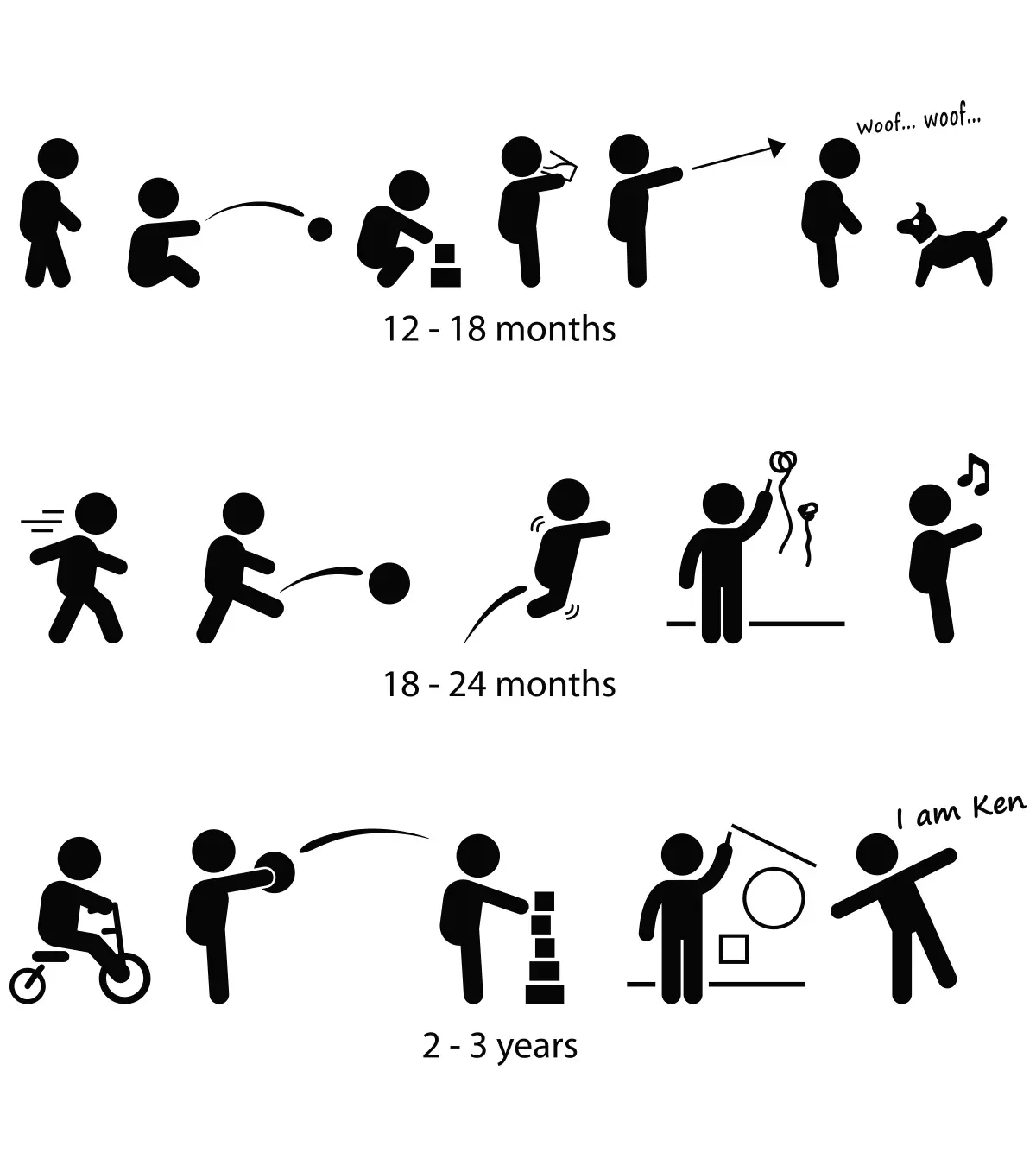

Image: Shutterstock

Cluster feeding is a typical behavior in newborns where the baby wants to have frequent, brief feeding sessions (1). Your infant may require multiple nursing sessions in a short period, leaving you exhausted and tired.
Cluster feeding usually occurs in infants because their stomachs are not big enough to store a lot of milk. Hence, frequent feedings are not always a sign that the mother is not producing enough milk.
Read this post to learn more about why babies cluster feed, when they do it, how long it lasts, whether you can cluster feed formula, the benefits, how to deal with it, and when to consult a doctor about it.
What Is Cluster Feeding?
When your baby wants to feed non-stop or bunch several feedings at a time, the phenomenon is referred to as cluster feeding (1). Your baby will mostly cluster feed during the initial months after birth, and it is a normal phenomenon.
During cluster feeding, a baby is fussy and wants to latch on and off on the mother’s breast. Cluster feeding a newborn baby usually occurs during the evenings but in some babies, the requirement may be throughout the day.
Why Do Babies Cluster Feed?
Babies resort to cluster feeding due to various reasons:
- It occurs when the infant is experiencing a growth spurt (2) and needs extra nourishment. It is quite normal and is a common occurrence in the early breastfeeding days.
- Infants usually nurse eight to ten times a day (3) but in some cases, their tiny tummies need to nurse more often. Babies know when they need more milk, and their hunger pangs last until they feel satisfied.
So, note that feeding so many times does not mean that you are unable to produce enough milk for your baby or you need to find a suitable supplement for the baby. In fact, feeding frequently could increase the milk supply.
When Do Babies Cluster Feed?
Babies experience rapid growth during the first year of their life (4). And, this is the phase when babies require more milk.
Your baby is probably undergoing a growth spurt if (1) (5):
- The baby is fussy and cries often during breastfeeding
- They are falling asleep between feeding intervals
- Are irritable and restless
- Do not take complete long feeds
- Are gaining weight
- The diaper count is higher
- There is a leap in their development
- The baby is seeking comfort
When the baby is experiencing a growth spurt, cluster feeding may possibly soothe them.
At What Time Of The Day Do Babies Cluster Feed?
There is no fixed time for a baby to cluster feed. It depends on whether or not the baby feels their tummy full. Do not decide the schedule to cluster feed the baby because it might lead to overfeeding them when they do not need it.
Most mothers say that their babies cluster feed in the evening (2). In fact, that will help the infants to sleep longer in the night with a full stomach.
How Long Does Cluster Feeding Last?
Each baby is different and so are their needs. While some babies may stop cluster feeding by the second month, some might continue it into their third month or further.
The babies may stop cluster feeding if the calories required for their growth spurt are being met or when their growth spurt completes.
Can You Cluster Feed Formula?
If you are breastfeeding the baby, then avoid cluster feeding formula. The formula may be considered as an alternate option in cases where you are unavailable for cluster feeding or you are unable to do it due to illness or some other reason (6).
Formula feeding is not an unhealthy option but mother’s milk is healthier.
But if you are asking, “Do formula fed babies cluster feed too?” then the answer is “Yes”. Babies need to fill in their tiny little tummies, whether it is formula or breastmilk.
Cluster feeding may not be easy for you as you have to sit with the baby for a long time. This might leave you more tired. But the benefits of cluster feeding might be motivating enough for you.
What Are The Benefits Of Cluster Feeding ?
Here is how cluster feeding could be useful for the baby:
- Cluster feeding provides the nourishment needed for the baby during their growth spurt (2).
- Being in the arms of the mother, near her bosom, provides comfort and security to the baby, satisfying their emotional needs.
- As the baby drinks more milk, the mother will be able to produce more milk (8) naturally. Cluster feeding promotes a better sleep cycle as they sleep for a long time after a fulfilling feed.
- Cluster feeding soothes and calms the baby through skin-to-skin contact with the mother (9).
One demerit of cluster feeding is exhaustion and tired breasts in the mother.
How To Deal With Cluster Feeding?
Acceptance of the situation plays a very significant role in coping with cluster feeding. You may try to mitigate your exhaustion in the following ways (7) (1):
- Plan your breaks and sleep based on your baby’s feeding schedule.
- Eat healthy to keep yourself energetic and stay hydrated.
- Seek help from others (your partner, parents, others in the family) in doing the chores at home.
- Wear your baby in a sling to keep your arms free. This will enable you to relax by reading a book or watching your favorite shows.
- Stock up on snacks and place them at various spots in the house where you feed your baby most often. You can munch on them while your baby breastfeeds.
Sometimes, cluster feeding may continue for no apparent reason, and you may have to see a doctor.
When Should You Consult A Doctor?
Talk to a pediatrician or lactation expert in the below circumstances (1):
- The baby is not gaining appropriate weight
- There is no increase in the wet diapers
- Your baby is finding it difficult to poop
- Fussiness continues
- The baby is not sleeping well
Frequently Asked Questions
1. Is cluster feeding a full feed?
In contrast to the common myth that cluster feeding may not keep a baby fuller after a feed, a baby who resorts to cluster feeding might feed enough for their daily requirements (2).
2. Do babies spit up more when cluster feeding?
There could be no direct link between cluster feeding and baby spitting up. However, babies usually spit or vomit milk when they feed too quickly, have been overfed, or have an underlying medical problem (10).
Cluster feeding is a common phenomenon in newborns, where babies resort to periodic feeding at regular intervals. This may be due to the baby’s small tummy, growth spurts, or need for extra nourishment. Although most babies stop cluster feeding after three months, some may continue further. However, you must follow your baby’s cues and feed them accordingly. In addition, make sure to keep yourself well-nourished and hydrated to support your baby’s feeding demands. Nonetheless, talk to a doctor or lactation consultant if your baby is not showing signs of optimum growth.
References
- Cluster feeding.
https://www.pregnancybirthbaby.org.au/cluster-feeding - Cluster feeding and growth spurts.
https://wicbreastfeeding.fns.usda.gov/cluster-feeding-and-growth-spurts - Breastfeeding tips for beginners.
https://www.chop.edu/centers-programs/breastfeeding-and-lactation-program/breastfeeding-tips-beginners - Infant milestones and physical development.
https://www.northshore.org/pediatrics/ages-and-milestones/infant/ - Your baby’s growth: 1 month.
https://kidshealth.org/CHOC/en/parents/grow13m.html - Baby’s first month: Feeding and Nutrition.
https://www.healthychildren.org/English/ages-stages/baby/feeding-nutrition/Pages/The-First-Month-Feeding-and-Nutrition.aspx - Breastfeeding.
https://www.wupdhd.org/wp-content/uploads/2025/09/Edition-1-2025.pdf - Breastfeeding: Tips to increase your milk supply.
https://www.uhhospitals.org/services/obgyn-womens-health/patient-resources/pregnancy-resources/Breastfeeding-Guide/breastfeeding-tips-to-increase-your-milk-supply - Skin-to-skin contact for you and your baby.
https://health.clevelandclinic.org/4-top-benefits-skin-to-skin-contact-for-babies - Why is my baby spitting up so much breast milk?
https://www.texaschildrens.org/content/wellness/why-my-baby-spitting-so-much-breast-milk
Community Experiences
Join the conversation and become a part of our nurturing community! Share your stories, experiences, and insights to connect with fellow parents.
Read full bio of Rebecca Koyf
Read full bio of Swati Patwal














